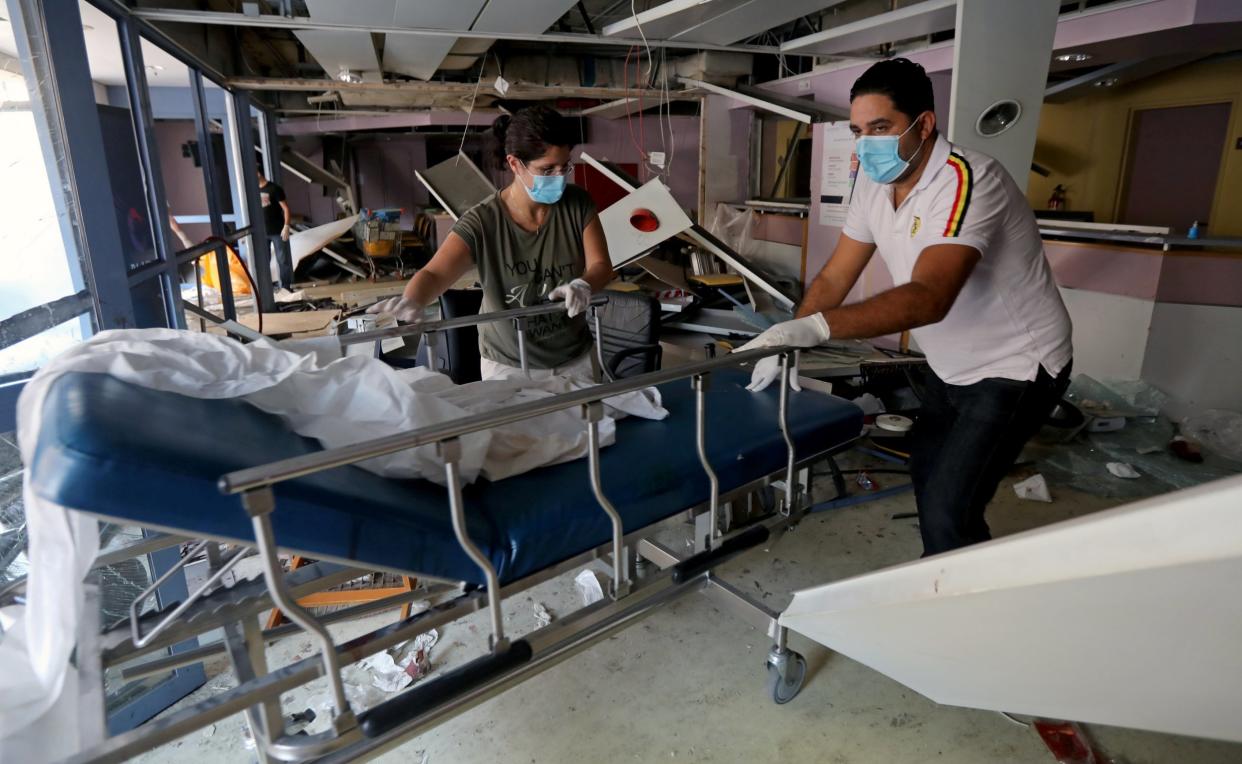Now is the time for action – not just kind words – to help a devastated Beirut

News of the explosion in Beirut came first through my family WhatsApp group. Rumours flew from one theory to the next before we understood the cause of the mushroom cloud to be almost 3,000 tonnes of ammonium nitrate stored in a warehouse at the docks. Watching videos of the damage caused, and speaking to friends and family, my overwhelming feelings are of immeasurable sadness and humanitarian concern for a country already at breaking point.
I’d moved back to Lebanon about four years ago, to work with Doctors Without Borders in a refugee camp in a suburb of the capital. Even then, the health sector was stretched. The neighbouring war had seen the influx of a million Syrians in addition to the 475,000 refugees already from Palestine; with one in every four inhabitants a refugee - Lebanon is the country with the highest number of refugees per capita. For a country half the size of Wales, the rapid population growth was palpable, not least with the pressure placed on infrastructure, services and the economy.
Towards the end of 2019 I started to hear rumblings of concern from family and friends. Despite massive debt, the economy had managed to remain relatively stable until the Lebanese lira, for years artificially pegged to the dollar at a fixed rate, went into freefall. The months that followed saw protests across the country. A monthly salary of 750,000LP dropped in value from $500 (£414) to $75 (£62). Nearly half the population now officially live below the poverty line and many are unable to afford food. Last month, a there was a death by suicide on a popular high street, with the man leaving a note with a line from a song - “I’m not a heretic” - which ends, “but hunger is heresy”.
It is on this backdrop: refugee crisis, economic crisis, massive debt, electricity shortages, and years of corruption, that coronavirus hit. Just five days ago, hospitals declared that they would be inundated within a fortnight, unable to care for the rising numbers of coronavirus cases in the context of scarce medical supplies, an inability to pay staff, and a lack of electricity.
A catastrophe like that which hit Beirut on Tuesday would be horrific for any country, but for Lebanon the timing couldn’t be worse. The majority of grain supplies have been lost in the explosion and the port is destroyed. 300,000 people have been left homeless. At least four hospitals were severely damaged by the blast.
This is now undoubtedly a humanitarian emergency. Whilst prayers and platitudes may warm the heart, they do little to tangibly change the reality for those on the ground. For those of us watching heartbroken from the UK, now seems an apt time to reflect on the merger of the Foreign Office with the Department for International Development. The latter is internationally recognised for its aid effectiveness and humanitarian responsiveness - exactly what countries like Lebanon need.
While Boris Johnson did today state that “the UK is ready to support in any way we can”, similar mergers of foreign and development departments in countries such as Australia and Canada have impacted both the quantity and quality of aid delivered.
To be able to respond to humanitarian crises based solely on need, and not for security or diplomatic interests as is risked by such a merger, is an asset we should not let go of so freely. Right now, Lebanon needs friends to provide healthcare professionals, medicines, grains, disaster expertise and financial support, and to do so without leveraging either personal political interest or corrupt Lebanese politics that brought us to this point.
Dr Rita Issa is a British doctor with family in Lebanon. Donations can be made to the Lebanese Red Cross and the Lebanon Disaster Relief Fund.

